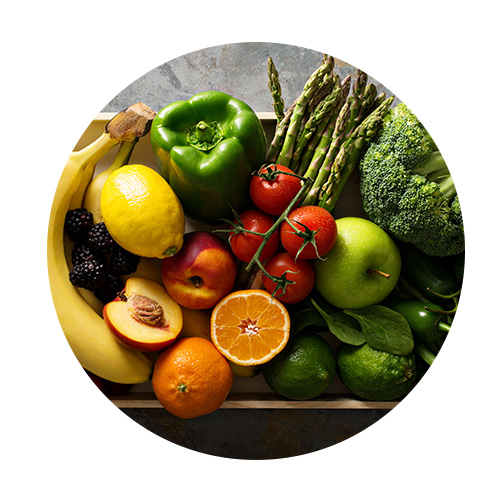Scientific news

Discover five recent scientific articles from our food, health and sustainability watch.

The Brazilian Food Guide messages are mainly qualitative, focusing on food practices, such as meal planning and cooking. A recent study examined the association between adherence to these practices and diet quality. To this end, a sub-group of the NutriNet-Brazil cohort completed the Food Practices Brazil Scale which is a questionnaire designed to assess adherence to the dietary practices recommended by the Brazilian Food Guide. Data from 24-h recalls were used to determine the percentage of energy intake of ten food groups based on the level of food processing. Linear regression analysis revealed that people with the highest adherence to dietary guidelines present a lower percentage of energy intake from processed and ultra-processed foods. These findings support the use of messages based on practices and behaviours in food-based dietary guidelines.

A recent study examined the association between fruit- and vegetable-associated bacteria and the overall gut bacterial diversity. A range of bioinformatics tools were used to reconstruct representative genomes of fruit- and vegetable-associated bacteria. These genomes were then used as the basis for studying the occurrence of fruit- and vegetable-associated bacteria in 2,426 publicly available gut metagenomes. The results showed that the microbiomes of fresh fruits and vegetables and the human gut are represented by common bacterial orders. Furthermore, exposure to bacteria via fruit and vegetable consumption would appear to have a potential benefit on the diversity of the gut microbiota, due to the presence of putative health-promoting genes. Thus, this study has demonstrated that fruit and vegetable-derived micro-organisms can be found in the human gut and contribute to gut microbiome diversity.

Over the past few years, a wide range of interventions have been implemented to promote children’s nutritional health. A recent systematic review summarized evidence from experimental studies on the effectiveness of digital tools for the promotion of healthy diet in school-aged children. Three of the 4 studies included in the analysis involved a video game, while 1 involved watching a cartoon. According to this work, each intervention was effective in promoting a healthy diet in school-aged children. A significant increase both in knowledge of food groups and food frequencies, and in practices was observed after each intervention, although the effect faded over time. This review demonstrates that digital tools can be effective in health promotion interventions. However, further work is needed to assess their long-term effectiveness.

A recent study assessed the association between parents’ eating habits and physical activity levels, and their children’s lifestyles. A cross-sectional analysis of 8–16-year-old children and adolescents was carried out within the frame of the first edition of the Physical Activity, Sedentarism, Lifestyles, and Obesity in Spanish Youth study. Data on adherence to the Mediterranean diet, physical activity levels and screen time per day were collected from children and adolescents alongside data on parental diet and physical activity. Results show that high diet quality of parents was associated with higher adherence to the Mediterranean diet of children and adolescents. High physical activity level of parents was associated with lower consumption of sweet and fatty products in children and adolescents. Finally, children with high levels of physical activity were those whose parents showed better diet quality and physical activity levels.

The growing prevalence of food insecurity among students has prompted the implementation of various strategies, such as university food pantries. To assess their effectiveness, a recent study examined the association between monthly pantry visits and the frequency of fruit and vegetable consumption among students. The study included a total of 1,188 students access the 10-campus University of California who had access to food pantries or Basic Need Center. Data related to level of food security, number of monthly pantry visits and frequency of fruit and vegetable consumption were collected. Results showed that students experiencing food insecurity consumed 0.48 times less fruit and vegetables daily compared to students who were food secure. Among students experiencing food insecurity, each monthly food pantry visit was associated with higher daily frequencies of fruit and vegetables intake. These findings support the effectiveness of campus food pantries to increase fruit and vegetables intake among students in need of nutritional assistance.
